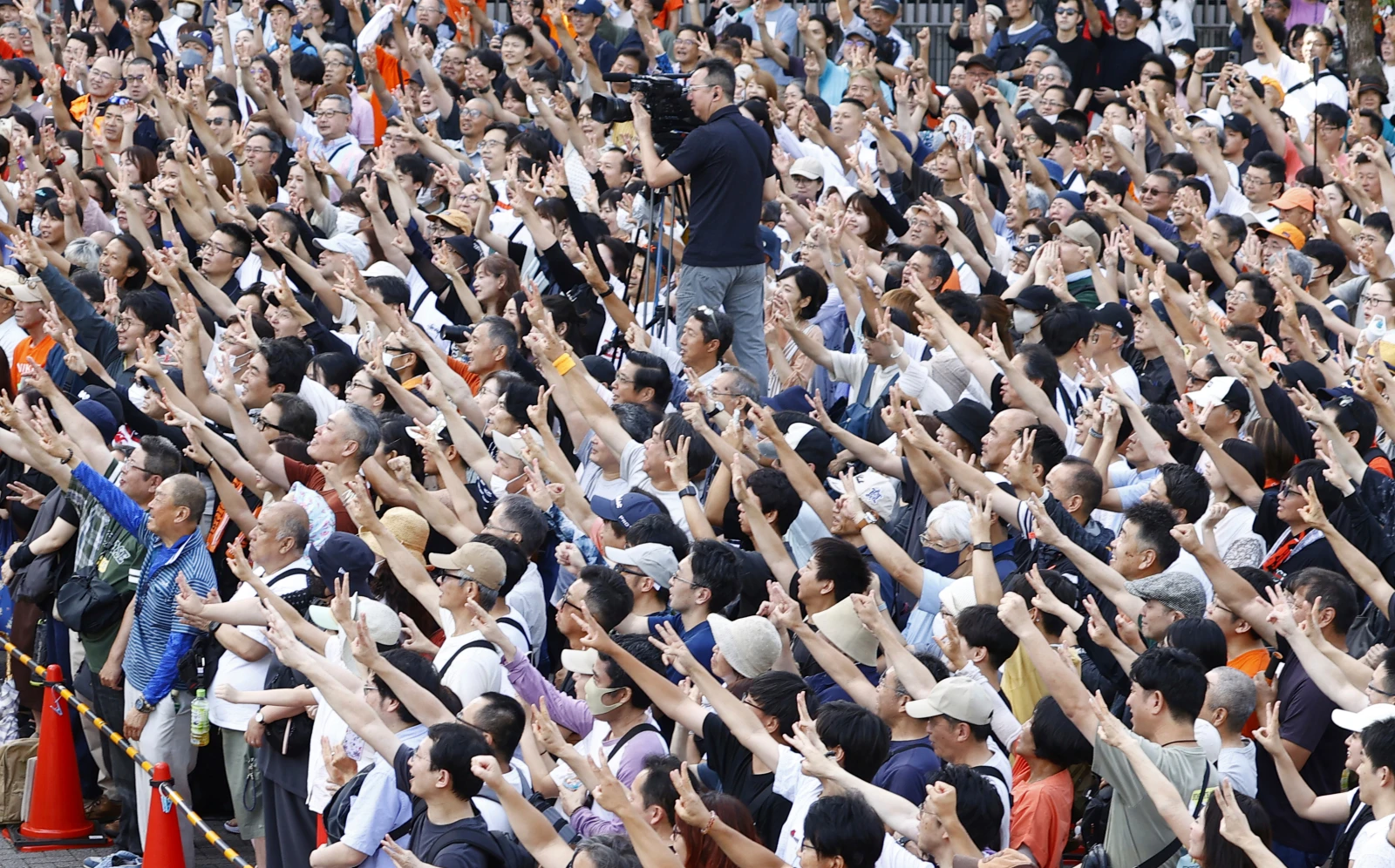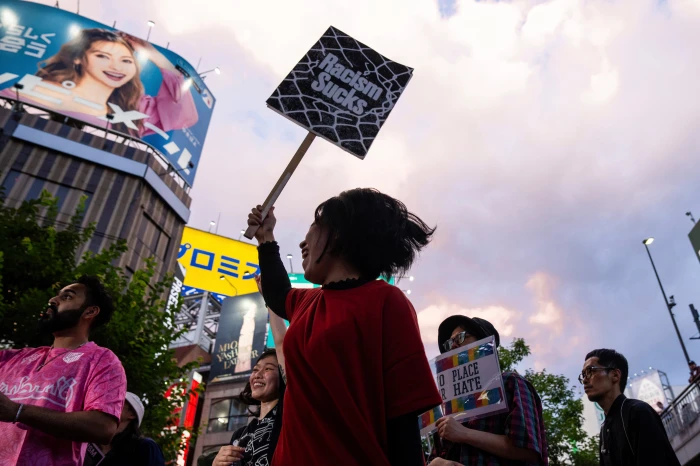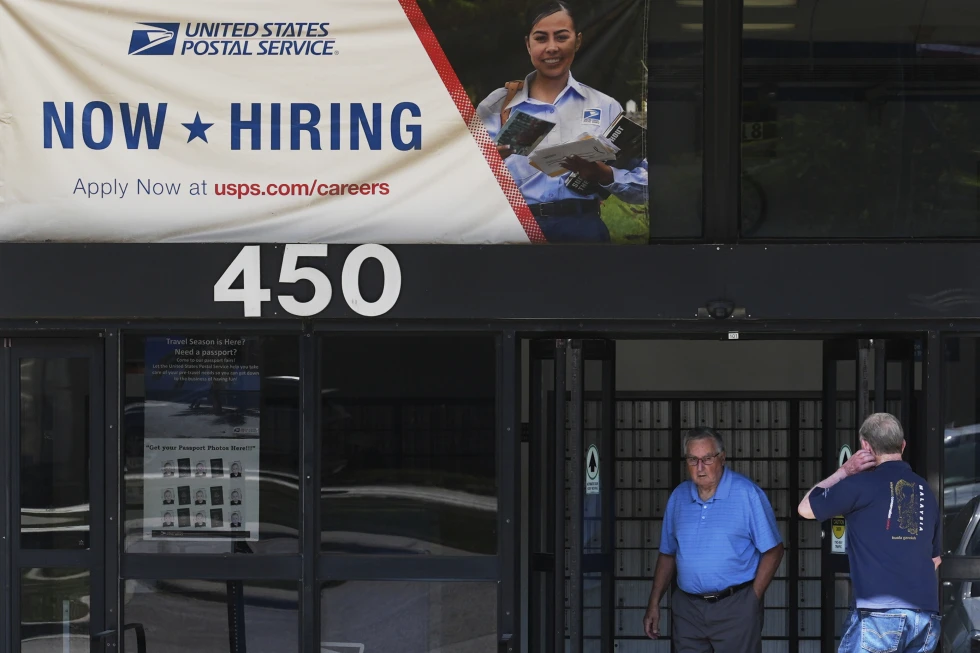o utside a train station near Tokyo, hundreds of people cheer as Sohei Kamiya, head of the surging nationalist party Sanseito, criticizes Japan’s rapidly growing foreign population.
As opponents, separated by uniformed police and bodyguards, accuse him of racism, Kamiya shouts back, saying he is only talking common sense.
Sanseito, while still a minor party, made big gains in July’s parliamentary election, and Kamiya’s “Japanese First” platform of anti-globalism, anti-immigration and anti-liberalism is gaining broader traction ahead of a ruling party vote Saturday that will choose the likely next prime minister.
Anti-immigrant policies, which allow populists to vent their dissatisfaction on easy targets, are appealing to more Japanese as they struggle with dwindling salaries, rising prices and bleak future outlooks.
“Many Japanese are frustrated by these problems, though we are too reserved to speak out. Mr. Kamiya is spelling them all out for us,” said Kenzo Hagiya, a retiree in the audience who said the “foreigner problem” is one of his biggest concerns.

The populist surge comes as Japan, a traditionally insular nation that values conformity and uniformity, sees a record surge of foreigners needed to bolster its shrinking workforce.
In September, angry protests fueled by social media misinformation about a looming flood of African immigrants quashed a government-led exchange program between four Japanese municipalities and African nations.
Even the governing party, which has promoted foreign labor and tourism, now calls for tighter restrictions on foreigners, but without showing how Japan, which has one of the world’s fastest-aging and fastest-dwindling populations, can economically stay afloat without them.
Kamiya says his platform has nothing to do with racism
“We only want to protect the peaceful lives and public safety of the Japanese,” he said at the rally in Yokohama, a major residential area for foreigners. Japanese people tolerate foreigners who respect the “Japanese way,” but those who cling to their own customs are not accepted because they intimidate, cause stress and anger the Japanese, he said.
Kamiya said the government was allowing foreign workers into the country only to benefit big Japanese businesses.
“Why do foreigners come first when the Japanese are struggling to make ends meet and suffering from fear?” Kamiya asked. “We are just saying the obvious in an obvious way. Attacking us for racial discrimination is wrong.”
Kamiya’s anti-immigrant message is gaining traction
All five candidates competing in Saturday’s governing Liberal Democratic Party leadership vote to replace outgoing Shigeru Ishiba as prime minister are vowing tougher measures on foreigners.
One of the favorites, former Economic Security Minister Sanae Takaichi, a hardline ultra-conservative, was criticized for championing unconfirmed claims that foreign tourists abused deer at a park in Nara, her hometown.
Takaichi later said she wanted to convey the growing sense of anxiety and anger among many Japanese about ”outrageous” foreigners.
During the July election campaign, far-right candidates insulted Japan’s about 2,000 Kurds, many of whom fled persecution in Turkey.
A Kurdish citizen, who escaped to Japan as a child after his father faced arrest for complaining about military hazing, said he and his fellow Kurds have had to deal with people calling them criminals on social media.
Japan has a history of discrimination against ethnic Koreans and Chinese, dating from the colonialist era in the first half of the 20th century.
Some of that discrimination persists today, with insults and attacks targeting Chinese immigrants, investors and their businesses.
Hoang Vinh Tien, 44, a Vietnamese resident who has lived in Japan for more than 20 years, says foreigners are often underpaid and face discrimination, including in renting apartments. He says he has worked hard to be accepted as part of the community.
“As we hear about trouble involving foreigners, I share the concerns of the Japanese people who want to protect Japan, and I support stricter measures for anyone from any country, including Vietnam,” Hoang said.

















